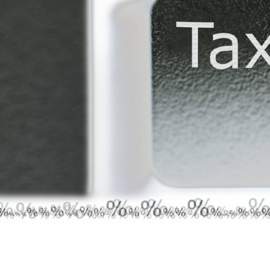
Ohio Tax

Individual Income Tax Forms
Form IT 1040 Individual Income Tax Return
Form IT 1040X Ohio Amended Individual Income Tax Return
Form IT 1040EZ Individual Income Tax Return for Full-Year Ohio Residents
Corporate Income Tax Forms
Form FT REF Application for Corporation Franchise Tax Refund
Sales Tax Forms
Form Application for Sales and Use Tax Refund
Form Sales and Use Tax Blanket Exemption Certificate
Form UST1 Sales Tax Return (Long Form)
Form UST 1 Sale Tax Return (Short Form)
Property Tax Forms
Form DTE-23 Application for Real Property Tax Exemption and Remission
Primary Concerns:
The economic story of Ohio is one predicated on a delicate balancing act between being corporate friendly and being fair and compassionate to its taxpayers.
Ohio offers one of the best states in the entire country for offering a climate that is attractive to businesses, and it has only gotten better as it has rolled back numerous taxes on corporations. Ohio regularly receives recognitions from many business publications for its corporate friendly climate, but its image from the individual level is much direr.
Ohio has an unemployment rate of just below 11%, higher than the national average with just over 13% living at poverty level.
While boasting the third largest manufacturing sector in the entire United States, before and after the economic crisis, many manufacturing jobs were eliminated or outsources internationally, leaving many unemployed and unable to find new employment in the state.
Ohio's employment growth predictions are fairly modest over the next decade, and as a result the population has begun to modestly shrink, as many are moving out of state to find work elsewhere.
The state of Ohio, to offset the financial difficulties experienced by its state after the housing bust in 2005, passed legislation that would decreased the income tax every year until 2011. At the same time, it also began to phase out its corporate franchise tax in favor of a much more business friendly Corporate Activity Tax.
As a result, Ohio's tax revenues for tax year 2009 fell about 7.5% short of expectations. While Ohio's state financial picture is not as poor as other states (such as California and New York), and the state government is sure they will be able to balance their budget, many are concerned that Ohio will have to alter its tax system yet again to face the newer, harsher economic climate. Whether Ohio will do so has yet to be decided.
Income Taxes:
All Ohio residents and part time residents must file Ohio income tax returns, as well as any nonresidents who draw income from in the state.
The income tax rates in Ohio have been falling since 2005, but will be halted in 2011. Listed here will be the 2010 tax bracketing, which is done on a progressive scale with staggered bracketing.
Taxpayers earning $5000 or less in income will owe 0.618% of that income in taxes. Over $5,000 and up to $10,000, the tax will be $30.90 (0.618% of $5,000) plus 1.236% of the excess over the base of $5,000. Between $10,000 and $15,000 the tax is $92.70 plus 2,473% of excess over the base. Between $15,000 and $20,000 the tax is $216.35 plus 3.091% of excess over the base.
Between $20,000 and $40,000 the tax is $370.90 plus 3.708% of excess over the base. Between $40,000 and $80,000 the tax is $1,112.50 plus 4.327% of excess over the base.
Between $80,000 and $100,000 the tax is $2,843.30 with 4.945% of excess over the base. Between $100,000 and $200,000 the tax is $3,832.30 with 5.741% of excess over the base. For incomes over $200,000 the tax will be $9,573.30 plus 6.34% of excess over the top base.
In 2011, the brackets will remain the same, with each new percent being 0.587%, 1.174%. 2,348%, 2.935%, 3.521%, 4.109%, 4.695%, 5.451%, and 5.925%, respectively.
Corporate Income Taxes:
Ohio is in a period of transition right now with its corporate income tax policies, as it segueing from a corporate franchise tax that expired in 2009 to a Gross Receipts Tax called the Commercial Activity Tax, which will be active from 2010 onward. The tax will be 0.26% of all taxable receipts.
Because of its extremely business friendly tax laws, Ohio is considered one of the best states to own a business in. However, it should be mentioned that many shareholders will, as a result, have to pay individual income taxes in lieu of corporate income taxes.
Property Taxes:
Beginning in 2009, Ohio has completely phased out any personal property tax, meaning that the only property taxes are taken on real property.
In Ohio, property taxes are assessed and collected on a county level by assessors, who determine the "ad veloreum," or real market worth of a property and make determinations based on levies determined by local counties.
Because of economic hardship in the state, each county auditor in the state were forced to roll back all non-commercial property taxed charged by 10%, and then further reduce the tax on owner occupied property by an additional 2.5% To account for any shortfalls this would cause in country government would be fully reimbursed by Ohio's Property Tax Administration Fund.
Sales Tax:
State sales tax in Ohio is 5.5%, though individual counties are entitled to levy addition sales taxes on that amount, usually restricted to being between either 0.25% and 2.5%. Local transit authorities many also levy a sales tax between 0.25% and 2.5%, however the state restricts that sales tax in the state may not go over 8.5%. The highest in the state, at the present moment, is 7.75%.
Unprepared food and prescription drugs are exempt from sales tax in Ohio.
Ohio also forces use taxes to be charged as sales taxes whenever a vendor sells to a individual in the state, unless that vendor makes less than $4 million in annual sales nationwide.
NEXT: Oklahoma State Tax





















